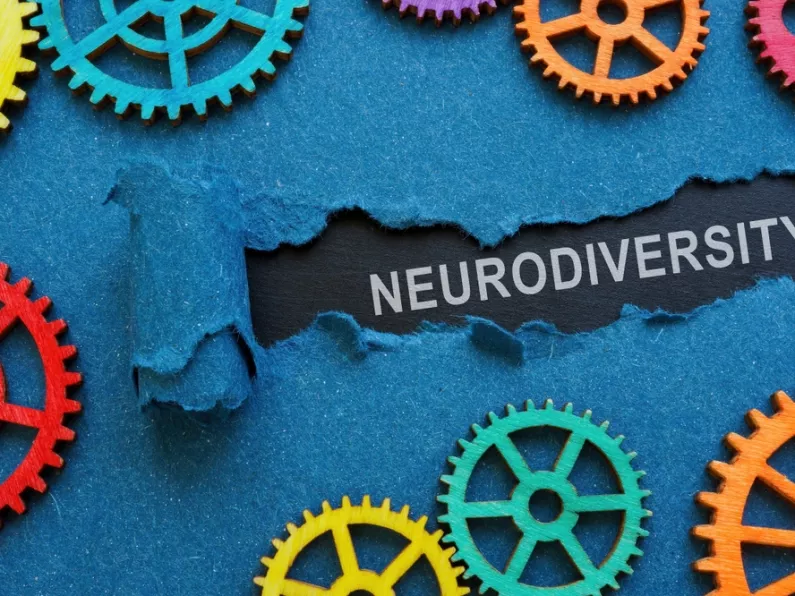It's a topic we don't talk enough about because it can be triggering, but in this article I want to discuss neurodiversity in kids, its signs and traits, and my own personal experience.
In a nutshell, neurodiveristy holds the concept that there is natural variation and difference in the structure and processing of our brains.
Beautifully put by Judy Singer: "Neurodiversity refers to the virtually infinite neuro-cognitive variability within Earth’s human population.
"It points to the fact that every human has a unique nervous system with a unique combination of abilities and needs.”
Diversity
This big word is thrown around here and there with a lot of misinformation, and that makes it feel scary and far removed - when in fact it is anything but.
According to the good old Harvard Health Publishing: "Neurodiversity describes the idea that people experience and interact with the world around them in many different ways; there is no one 'right' way of thinking, learning, and behaving, and differences are not viewed as deficits.
"The word neurodiversity refers to the diversity of all people, but it is often used in the context of autism spectrum disorder (ASD), as well as other neurological or developmental conditions such as ADHD or other learning disabilities."
Seeing the signs
My daughter falls under that neurodiverse umbrella.
That was, and still can be, a lot to manage and even wrap my mind around.
How did I know, I hear you ask? What signs did I see?
More like what signs didn’t I see.
Understanding
My daughter was loud with her traits (lucky for me), and that was scary and frustrating (still can be frustrating even now).
With the help of her pediatrician, research and patience, I was able to understand her more and thus create an environment in which she can thrive.
Her quality of life is still like that of a neurotypical child.
I know that many of us share sentiments that these labels can be harmful to people - far less children - but I see them as a means to helping me understand my child more, for my child to understand herself more and therein love and grow in true self and not the masked version.
They are also important for the world to understand and welcome her difference.
Navigating a neurotypical world
Sometimes when we hear words like autism, neurodiverse or ADHD, many of us envision extremes and untruths about these neurological variations.
Autism is not a screaming, rocking child; ADHD is not an unparented and mischievous child; children with sensory processing difficulties are not aiming to be picky or difficult.
However, when you are a minority in a mainly neurotypical society, the world isn't made for you or always accommodating, so daily life can be more overwhelming and challenging.
As parents and caregivers, we can help by simply educating ourselves and supporting our children and loved ones who may fall under this umbrella, and curating a safe space and environment for them.
Neurodiversity in kids: signs and traits
Here are some signs that my child showed, some that she outgrew and some that are still present.
- Head banging
- Excessive spitting and smearing
- Inability to tolerate sand, grass and multi textured surfaces or textures
- Intolerant to imperfections
- Food aversions/picky eating (Food cannot touch, be mixed or have plenty textures)
- Easily overstimulated with large groups of children or people
- Inability to sit still
- Aversion to patterned clothing and tags
- Fixations: For example, my daughter was and is still obsessed with complex space and scientific subjects
- Big explosive emotions
- Little to no cognitive flexibility: change causes massive distress
- The more packed her day would be, the less she may rest as her body goes into overdrive and her system has a hard time regulating itself
- Poor emotional regulation.
These are just a few that I noticed over the years.
Patience
After discussing my concerns with health care professionals in the field and doing my own researching, I started to learn how her brain processed things which allowed me to help her with the skills, tools and love to be a comfortably-functioning child in a neurotypical world.
This takes a lot of time, patience and trial and error.
From allowing her space to have her meltdowns and then working through those feelings and giving her the language to communicate those big and painful emotions, I was learning bit by bit.
Routine
Keeping a routine is so, so important because her system processes differently and gets more overwhelmed quickly.
Creating routines and consistency helps to manually regulate her nervous system and overall being.
I changed her diet and looked at foods that may have also aggravated her brain and body and tried my best to give her a clean diet or a diet that her system thrived on and responded well to.
Support
I try not to over pack her days or weeks and allow calm down periods where her brain can reset.
And of course I'm always her vocal advocate when she isn’t coping in situations.
From the outside, children who fall under this umbrella may seem ‘out of control’, ‘badly behaved’, ‘spoilt’, ‘in need of a good curtail’ etc.
But in reality, they need support and understanding for them to have a calm and happy brain and body.
Everyone is different
The children are usually insanely intelligent and gifted, even if their socio-emotional aspects operate differently.
We need to hone their strengths and challenges and celebrate them. And remember, we need all types of people to make the world go around.
If you suspect your child may be neurodiverse or you are a parent or caregiver that already has a diagnosed child and want more support, check out some of these articles and talk to your healthcare provider.
